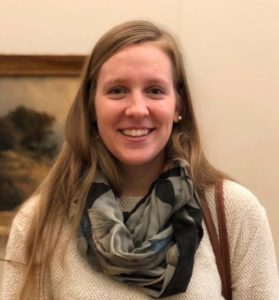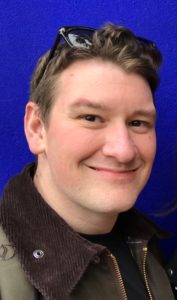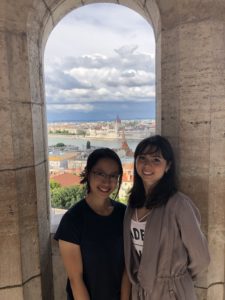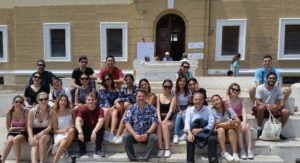The Centre for
European, Russian, & Eurasian Studies
The Centre for European, Russian, and Eurasian Studies is one of North America’s leading academic institutes for the study of the member states of the European Union, the countries of the former Soviet Union, and Central and Eastern Europe. The Centre promotes interdisciplinary scholarship and teaching in the social sciences and humanities. Drawing upon the expertise of more than ten departments and dozens of faculty members, CERES sponsors undergraduate degree programs in European Studies and in Hungarian Studies, and a Master of Arts degree program in European and Russian Affairs. CERES organizes each year a number of regionally focused conferences and seminars and hosts several post-doctoral scholars. CERES is home of the Joint Initiative in German and European Studies, the Centre for the Study of France and the Francophone World, and the Petro Jacyk Program for the Study of Ukraine. Through its intensive relations with the European Commission, the German Academic Exchange Service, the wider local community in Toronto, and institutions of higher learning across Europe, Ukraine, and Russia, CERES supports the exchange of ideas and scholars across the Atlantic.
CERES’s main objectives are:
- to educate students at the graduate and undergraduate level in the languages, history, politics, economics and societies of Europe, Russia, and Eurasia, and to prepare them for careers dealing with the region;
- to offer students at the University of Toronto valuable first-hand experience of the region through internship and exchange programs;
- to serve as a comprehensive, accessible, and authoritative source of information and analysis on the regions of Europe, Russia, and Eurasia for the Canadian news media, business community, and the general public;
- to promote scholarly links between East and West.
Graduate Program
in European and Russian AFFAIRS
About the Program
Recognized as one of the best of its kind in North America, the Master of Arts Program at the University of Toronto’s Centre for European, Russian, and Eurasian Studies (CERES) offers students the opportunity to engage in a comprehensive, rigorous and hands-on study program. In addition to the top faculty in their fields, CERES provides generous funding to MA candidates through fellowships or financial support for internships, language training, and study abroad opportunities. In this two-year program, our students typically spend a summer or a semester engaged in research or training internationally, with advisory and logistical support from CERES. This field component alone sets us apart from other MA programs. The diverse array of courses available to students of the MA program is supplemented by short intensive workshops. CERES hosts two or more per year on specialized topics of regional interest.
CERES also sponsors a busy agenda of seminars and conferences. Every week, top specialists from around the world take part in an engaging series of debates at the Munk School of Global Affairs and Public Policy. CERES students are encouraged as well to develop their own projects and initiatives, and every year they host their own graduate student conference and publish The Eurasiatique, an annual graduate student journal.
The Master of Arts in European and Russian Affairs can be combined with the Juris Doctor Program in Law (MA ERA/JD), the Collaborative Program in Jewish Studies, or the Collaborative Graduate Program in Ethnic and Pluralism Studies.
CERES students can secure first-hand experience in the region of their interest through the Summer Internship Program. Furthermore, CERES offers exchange programs with universities in Europe.
CERES students are part of Canada’s premier university. The University of Toronto’s graduate programs and research facilities attract students from around the world. The Library’s holdings on Germany, Russia, Eurasia, and East, Central, and Southeastern Europe are among the best in North America.
Apart from access to the country’s largest group of faculty experts on the region, CERES students also benefit from the Visiting Scholars and Visiting Leaders and Policymakers programs, which brings distinguished decision-makers, past and present, and scholars from the region to the University. Beyond that, the Centre hosts lectures, workshops, and conferences in all the related disciplines, on average of more than one event per week throughout the academic year.
Follow the above links to for more information on what makes Centre for European, Russian, and Eurasian Studies the best option for students seeking a well-rounded and practical education. For the most detailed information, see our Graduate Handbook.
“The CERES MA program has helped to integrate both my academic and professional work-related skills. It has offered me the opportunities to work and conduct research across several European countries. More specifically, I have been able to build my project management, qualitative research and policy analysis skills in the fields of European affairs, minority integration and migration. The program’s multidisciplinary courses and its institutional partnerships allow students to pave their own path during their two years at the Munk School of Global Affairs and Public Policy.”
Silviu Kondan ’19
“As a grad student at CERES, I had a wealth of opportunities afforded to me and the support to help me take advantage of them. In two years, I’ve not only finished my Master’s degree but have also learned to speak Russian, lived in Moscow, worked in Brussels, and conducted research in Athens. With this knowledge and experience, I am excited and ready to start a career with the federal government!”
Lauren Hogan ’19
[/tabs]AdmissionS
What we look for:
At CERES, we look for curious, well-rounded, and enthusiastic individuals, who wish to take advantage of the personalized and interdisciplinary education that we offer. The small size of our Centre allows us to foster a holistic graduate experience within the larger community of the University of Toronto and the Munk School of Global Affairs & Public Policy. In our students, we hope to encourage more than academic achievement, and we welcome applicants from a wide range of backgrounds. An ideal applicant to our program does not hold specific qualifications but rather an open and motivated attitude. We embrace our students’ diverse and unique research interests, and we are committed to helping you with along your future path, whatever it may be.
How to apply:
Application deadlines:
- February 1 annually (to be considered for funding)
- After February 1 (to be considered for admission with no funding)
Application fee:
- There is a $125.00 CAD non-refundable application charge.
Application form:
- You will apply to CERES online through the School of Graduate Studies portal: https://admissions.sgs.utoronto.ca/apply/
- Please read through all the following information before beginning your application.
Application Instructions
- Submit your application to CERES through the School of Graduate Studies (SGS) online admissions application. Your application is not considered completed until you have entered all your personal and academic information and submitted the application fee. IMPORTANT: Only online admissions applications will be accepted. PDFs and printed application forms are not acceptable. Please contact CERES if you have any trouble using the online application system.
- You will be issued an applicant identification number and a password through the SGS online admissions application. This will allow you work on your application until your move to the payment stage.
- Once you have submitted your application and fee, you can return to the online admissions page to check the status of your application. You can also see whether we have received your supporting documents.
- You may pay the $125 application fee online by VISA or Mastercard. This payment method is securely handled by Mirapay, a third party authorized by VISA and Mastercard. Mirapay will provide SGS with payment confirmation only. SGS and the University of Toronto will not have access to your credit card information. Please note:
- We will not consider your application until after the fee is submitted.
- The payment process requires that popup blockers on your web browser be disabled.
- If you are unable to pay by credit card, you may print an invoice from the application and mail it with a certified cheque to SGS
- Please monitor the online application system. It is your responsibility to verify that all your supporting documents have been received by us.
Degree prerequisites
Domestic/Canadian Students:
- You must hold a four-year bachelor’s degree or its equivalent. There is no minimum GPA requirement, but competitive applicants should have a B+ average or higher from their most recent year of undergraduate work.
- There is no formal language requirement for entry into the program. However, by the end of your degree, you must demonstrate proficiency in a language related to our Centre’s regions of study. We therefore recommend some prior language training before entering the program.
International Students:
Our application requirements differ slightly for international students.
- Please review the School of Graduate Studies (SGS) Admission Guide for International Students where you can check if your international degree and transcript grades are considered equivalent. https://www.sgs.utoronto.ca/international-portal/applying-as-an-international-student/
- If your primary language is not English and you graduated from a non-Canadian university where the language of instruction is not English, you must demonstrate English proficiency by completing a CERES-approved English language test (examples: TOEFL – Test of English as a Foreign Language or IELTS – International English Language Testing System). Please consult with the CERES Program & Internship Coordinator before applying to ensure that your test is approved by CERES.
- If your primary language is not English but you graduated from a university where the language of instruction was in English, you may not be required to complete an English proficiency test. Please contact the CERES Program & Internship Coordinator to discuss this option.
Supporting Documents
1. Transcripts
-
- Please send electronic transcripts of your academic record from each university you have attended to CERES.
- Once you have been accepted into our program, we will ask you to send official transcripts from your institution directly to our mailing address. If transcripts are unable to be sent directly from the institution, you may send a sealed transcript that has been signed across the seal by the university official who issued it. Please note: during the COVID-19 pandemic, official electronic transcript submissions will be accepted.
- If you are applying from an ongoing degree program, you must submit your final academic records (indicating the completion of your degree) as soon as possible. Instructions regarding this process will be included in your offer of admission to CERES.
- If you attended a university outside North America, you must provide notarized English translations to accompany all documentation not written in English.
- Please note:
- Faxed records are not considered official.
- Any document submitted will not be returned.
2. Two letters of reference
-
- The online application will send a link to your referees where they can upload their letter directly to CERES.
- If your referees encounter difficulties uploading their letters, we will also accept letters of reference in a sealed envelope with the referee’s signature across the seal. Please do not open the envelope.
- Please note: letters of reference will be part of the official student academic record. They are confidential and applicants/students will not have access to them.
3. Statement of Intent
-
- Please provide a one-page statement of intent. This is our chance to get to know you and your motivations for choosing CERES. Please briefly include the following information:
-
-
-
-
-
- Reasons for your interest in the CERES MA program.
- Your preparation and qualifications for admission.
- Your academic and/or professional goals.
- You may also identify and explain a specific geographic region of interest that you wish to study at CERES.
-
-
-
-
-
- Please provide a one-page statement of intent. This is our chance to get to know you and your motivations for choosing CERES. Please briefly include the following information:
4. Writing Sample
-
-
- Please provide a sample of your academic writing. There are no specific requirements for the writing sample, so choose something that you feel represents your best work.
-
5. Curriculum Vitae (CV)
-
-
- Please provide an up-to-date CV, including your educational, professional, volunteer and/or extra-curricular, and any other relevant experience.
-
MAILING ADDRESS
Attention: Dr. Steve Maddox
Centre for European, Russian, and Eurasian Studies
Munk School of Global Affairs and Public Policy
1 Devonshire Place
Toronto ON M5S 3K7
Canada
Tuition and Funding
Tuition rates for the 2021-2022 school year are approximately $7,890.00 for domestic students and $26,210.00 for international students.
CERES students have a wide range of financial assistance opportunities, both from the School of Graduate Studies and the Centre. CERES provides funding for the study of:
- Western Europe & the European Union
- Russia and the former Soviet Union states
- Central, Southeastern Europe
- Eurasia
Funding for our MA students may comprise SSHRC and OGS support, Centre awards, as well as endowed scholarships. The latter may be awarded to qualified students whose research focuses on the following countries: Bulgaria, Czech Republic, Germany, Hungary, Lithuania, Slovak Republic, and Ukraine.
All applications to the MA program received before February 1 are automatically considered for financial aid, although funding is not guaranteed with admission.
Contact
Prof. Robert Austin, Graduate Coordinator
Tel: (416) 946-8942
Fax: (416) 946-8939
Email: robert.austin@utoronto.ca
Admissions FAQs
When is the admissions deadline for the CERES MA?
Completed applications (including all supporting documents and reference letters) must be received by February 1 to be considered for funding. Any applications received after February 1 will not be eligible for funding.
How do I begin my application?
You apply to CERES through the School of Graduate Studies online portal: https://admissions.sgs.utoronto.ca/apply/.
Through this portal, you can save and return to your application, upload supporting documents, submit your completed application, and check the status of your application.
Also, please make sure to read our application instructions and these FAQs carefully before beginning your application.
Who can I contact at CERES to ask questions about my application?
Our CERES staff and faculty are happy to speak with prospective students. Please contact:
- Dr. Steve Maddox, Program & Internship Coordinator: s.maddox@utoronto.ca or 416-946-8962.
- Professor Robert Austin, CERES Associate Director and Graduate Coordinator: robert.austin@utoronto.ca or 416-946-8942.
I’m an international student. Do I have different admissions requirements?
Yes. You must review the SGS Admission Guide for International Students (https://www.sgs.utoronto.ca/international-portal/applying-as-an-international-student/) to check if your international degree and transcript grades are considered equivalent to those from Canada. You may also need to complete English language testing. Please consult with the CERES Program & Internship Coordinator to discuss your specific application requirements.
Does CERES accept deferrals?
In general, CERES does not defer admission except on medical grounds.
Who should write my letters of reference?
We strongly prefer that your letters come from academic references. In cases of rare exception, we may accept letters written by other individuals (such as employers), however, please consult with the CERES administration before submitting a letter from a non-academic reference.
What should I write in my statement of intent?
The statement of intent is our chance to get to know you and your motivations for choosing CERES. Take this opportunity to tell us why you are interested in our program and the reasons why you would make an excellent candidate. What academic, personal, or professional experiences have led you to where you are today? Why do you want to pursue an MA at CERES? What kinds of academic and/or professional goals do you hope to achieve with a CERES MA? If you wish, you may also tell us about any specific regions of interest that you hope to study at CERES.
Please note: the statement of intent should be no longer than one page.
What should I use as my writing sample? Are there any specific requirements?
Your writing sample should be something that you feel best represents your academic writing ability. Usually, applicants submit an essay or a research paper from a previous degree. There are no specific requirements in subject matter or length, however, please keep in mind that the sample should be appropriate for a Master’s-level application. Please contact our office if you have any questions regarding your writing sample.
Are there any course prerequisites or recommended preparation courses for the CERES MA?
All incoming students at CERES are required to have a four-year Bachelor of Arts degree, or its equivalent. While it is helpful to have taken several undergraduate courses on European/Russian/Eurasian topics, there are no set prerequisite courses to apply for CERES. If possible, we do encourage incoming students to begin working toward their foreign language requirement before their first semester at CERES. This can help ease your course load during your degree.
Do I need to speak a foreign language to apply to CERES?
No, but you will need to fulfil the CERES foreign language requirement in order to graduate, so any prior language training is helpful. All students must demonstrate at minimum a reading competence in one of the CERES regions’ languages by the end of their second year. If you have previous knowledge of a foreign language, you may be able to fulfil this requirement by passing a University of Toronto proficiency test or providing an original language certificate from a recognized institution (such as Alliance Française or Goethe Institute). You may also begin language classes in a higher level when you begin your studies at CERES.
If you have no previous language training, it still possible to fulfil the requirement by starting a 100-level language class in your first year at CERES and completing the 200-level by the end of your degree.
Will I be notified when my application and supporting documents are received?
It is your responsibility to log into the SGS portal to check whether your application and supporting documents have been successfully uploaded. We will not send individual confirmation that we have received your application.
How much is tuition at CERES? Is there a different tuition rate for international students?
Tuition rates for the 2021-2022 school year are approximately $7,890.00 for domestic students and $26,210.00 for international students.
What funding is available to CERES students?
We offer several funding options to our students, both from CERES and the University of Toronto School of Graduate Studies. Funding is generally awarded on the basis of academic merit, and CERES offers several endowed awards for the study of specific regions in Europe, Russia, and Eurasia. Once accepted to the program and depending on eligibility, CERES students may also apply for funding from the Social Sciences and Humanities Research Council (SSHRC), the Ontario Graduate Scholarship (OGS), and other University of Toronto awards.
I don’t have a background in history or political science. Can I still apply to CERES?
Yes! We welcome applicants from a wide range of academic backgrounds. The CERES MA is an interdisciplinary degree, which will allow you to pursue your specific research interests, while also gaining a strong base of knowledge in the history and politics of the CERES regions of study. Once accepted as a CERES student, you will also choose a major field of study, which can be from any discipline, provided you complete up to 2.0 FCE (full credit equivalent) of coursework and that the focus of your research is related to the CERES regions of study.
I have been out of school for several years. Can I still apply for CERES?
Absolutely. While many of our students begin studying at CERES directly after their undergraduate degrees, many others come to CERES after time spent working in a variety of jobs and careers. If you have any questions or concerns about whether the CERES MA would be a good fit for you, please contact Professor Robert Austin, who would be happy to discuss the program in more detail.
Do I need to know where I want to go for my internship and/or exchange when I apply to CERES?
No. In your first semester at CERES, you will attend orientation sessions and workshops that will prepare you to apply for your internship and/or exchange.
Are there any programs that I can combine with my MA at CERES?
Yes, there are three options: the Combined MA and Juris Doctor Program in Law, the Collaborative Program in Jewish Studies, and the Collaborative Graduate Program in Ethnic, Immigration, and Pluralism Studies. Please see “Joint Programs & Specializations” on our website for more information.
How long is the CERES MA program?
Two years. In general, our students complete two full years of study, with their internship in the summer after their first year and potentially an exchange in the fall semester of their second year. Students can take up to three years to complete their degrees, however, funding options are not available after the first two years.
How many students are admitted to the CERES MA program?
Our admission process is highly selective, and an annual CERES cohort usually has only about 20 to 25 students.
Can I enroll in the CERES MA as a part-time student?
No, all CERES MA students must be enrolled full-time.
When does the CERES MA program begin?
New MA students at CERES are admitted in the fall of each year. There is no winter admittance. You will begin classes after Labour Day in September.
What kinds of careers will the CERES MA prepare me for?
Our graduates go on to a wide variety of careers. Many people work in government, diplomacy, or other public service positions. Others go on to work in non-profit organizations, communications, public relations, cybersecurity, culture and heritage, and education. The CERES MA also prepares students for future academic endeavours; many of our graduates have gone on to complete PhDs in fields such as history, anthropology, or political science. We are always happy to facilitate meetings between alumni and current students to help with career preparation.
Can I apply for a PhD after my CERES MA?
Yes, many of our graduates have gone on to pursue doctoral degrees after their time at CERES, either at the University of Toronto or elsewhere. CERES does not offer a doctoral program.
When will I find out if I’ve been accepted to CERES?
First round decisions are made in late-February and applicants will hear directly from the Graduate Coordinator. Subsequent admissions will follow until June.
When do I need to accept an offer of admission from CERES?
Decisions regarding offers of admission should be accepted by late-March.
Undergraduate Program
in European Affairs
Europe, like other major regions of the globe, has long been a significant focus of study at the University of Toronto. In recognition of the increasingly major role played by the European region on the global stage, and the importance of understanding Europe in a comprehensive way, the Munk School of Global Affairs and Public Policy offers undergraduate Major and Minor Programs in European Affairs . For students who desire the linguistic competence, the cultural comprehension, and the specialized knowledge necessary to operate effectively in the “new” Europe, the major program provides undergraduate students with the opportunity to focus on Europe through a wide variety of courses and disciplines. One of the program’s highlights is The European Studies Students’ Association (ESSA), a great way to get involved and meet people. ESSA offers a variety of activities throughout the year and publishes an annual journal Messages in the Media.
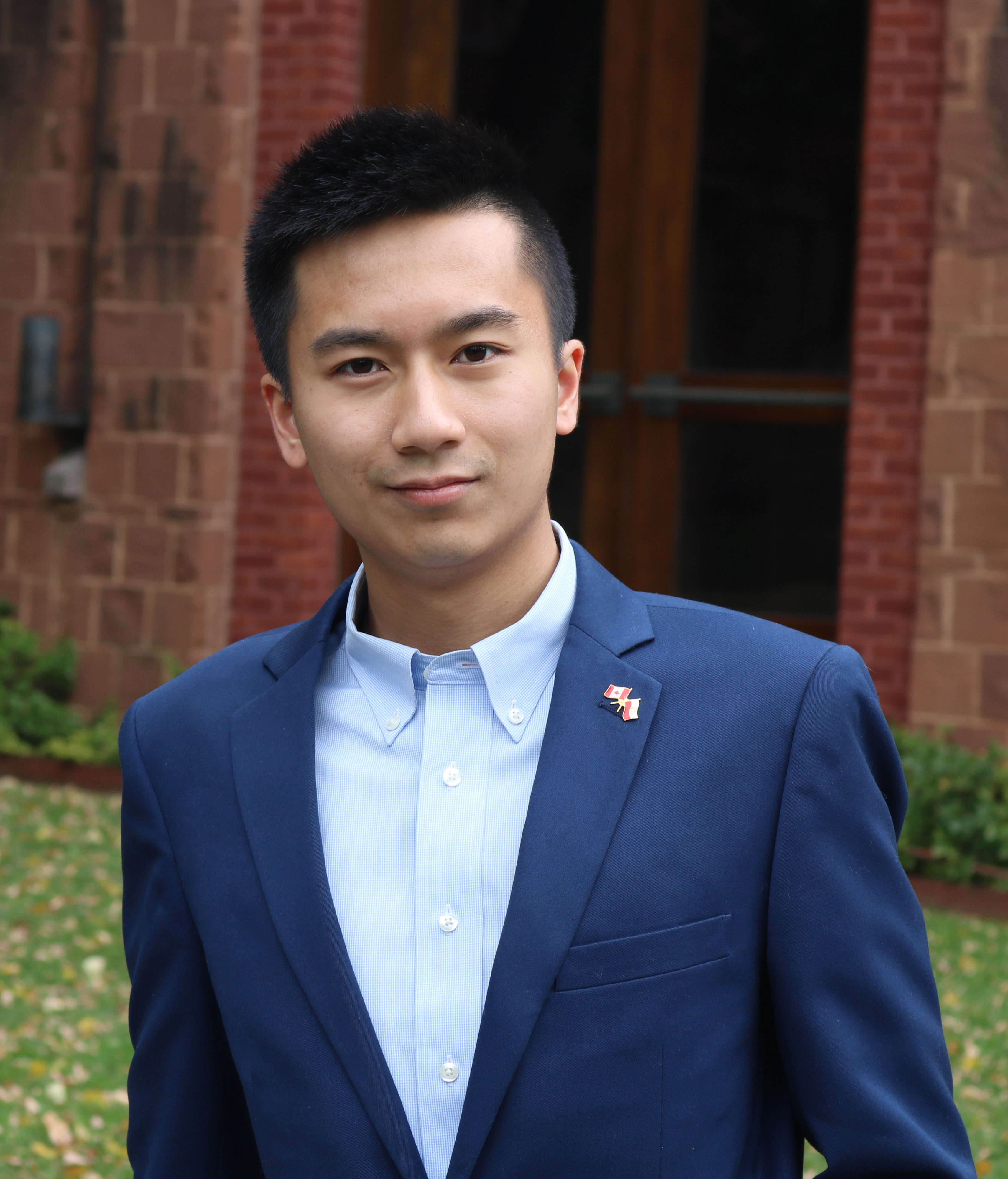
“The program provides guidance and training in observing European affairs through a variety of lenses. It’s a small program, which makes it easy to make friends and creates a tight-knit community”.
Ericsson Sing, European Studies Major
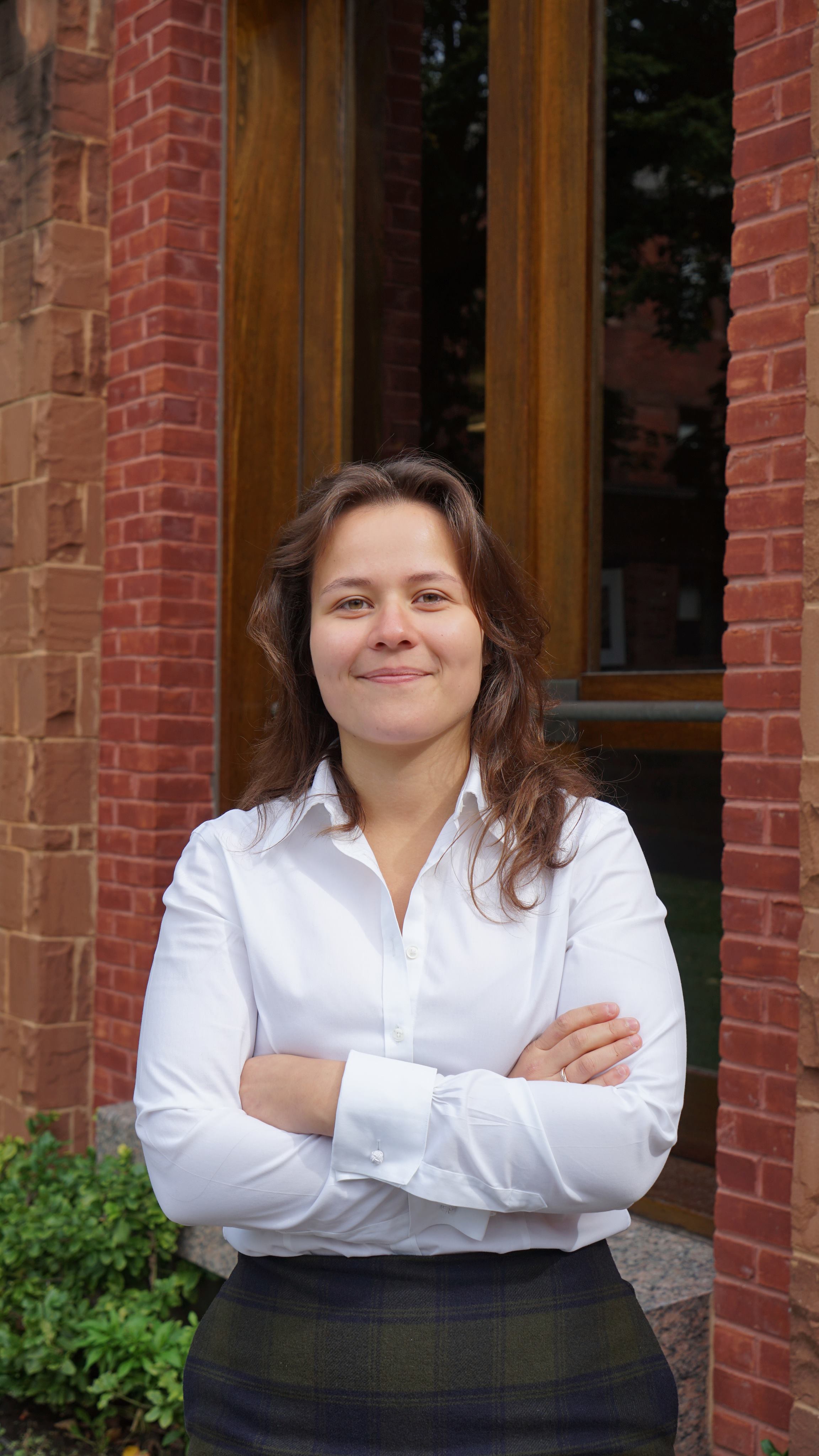
“The Program has not only provided me with incredible opportunities to attend events which are tailored to the program and its interests, I have also gained the privilege of connecting with the faculty in a meaningful way”.
Arina Dmitrenko, European Union Studies minor
Language competence is an important component of the European Studies program. Students majoring in European Studies are expected to acquire a working fluency in one or more of the following designated languages: Croatian, Czech, Estonian, Finnish, French, German, Hungarian, Italian, Modern Greek, Polish, Portuguese, Russian, Serbian, Slovak, Spanish, or Ukrainian.
For more information on degree requirements and courses, please consult the European Affairs site.
What Comes Next?
Many students continue to study the region on a graduate level at CERES or other comparable institutions. The European Affairs program equips students with deep knowledge of history and politics as well as strong language skills that are vital to roles in government and non-government organizations as well as in the private sector.
“The interdisciplinary nature of the program allowed me to study a variety of topics while also pursuing another language. These have been a great asset in a client-facing role as I am able to not only converse in the clients’ language, but also to have informed discussions about the history or politics of their country.”
Gareth Story, European Studies major, 2014
Undergraduate Program
in Hungarian Studies
Hungarian is spoken by ten and a half million inhabitants of present-day Hungary, about three million people in the neighbouring countries, and perhaps as many as an additional two million around the world. These figures make Hungarian, which is related to Finnish, Estonian, and Lappish, but virtually no other language in Europe, by far the largest minority language in the great Indo-European language territory.
Despite the isolation that might have been imposed by the uniqueness of their language, Hungarians have been engaged with, and participants in, greater European affairs since their arrival in the Carpathian basin more than a thousand years ago. Hungarians have made significant contributions in the fields of arts, science, and mathematics, winning Nobel Prizes in Chemistry (4), Medicine (3), Physics (3), Economics, and Literature. In the music world the names Bártok, Kodály, Lehár, Liszt, Széll, Ormandy, Schiff, and many others are internationally famous. Leo Szilárd, Edward Teller, Paul Erdõs, and John von Neumann are famous figures in theoretical physics and mathematics. Joseph Biró developed the ball-point pen and to this day the British call a ball-point pen, a biro. Hungarians have also become famous in sports, particularly soccer, boxing, and fencing, and in the world of cinema. And who has not played with the Rubik’s cube?
Hungarian Studies at the University of Toronto focus on the history, language, literature, and culture of Hungary and on the international role of Hungary and Hungarians—particularly on Hungarian immigration to Canada. For many of the courses, no prior knowledge of the Hungarian language is necessary, making them easily accessible to students from other programs.
For more information and degree requirements, please consult the Hungarian Studies program detailed course listings.
The program is made possible by the support of the Széchenyi Foundation, the Government of Hungary, and the Hungarian-Canadian community.
UNDERGRADUATE PROGRAM
IN HELLENIC STUDIES
Hellenic Studies at the Munk School of Global Affairs and Public Policy focus on the history, language, and culture of Greece and the wider Balkans. The program offers modern Greek language at the first, second and third-year levels along with a political science course at the third-year level on contemporary Greek politics and a fourth-year seminar on Greece, the Balkans and the European Union taught within the European Studies undergraduate program. In addition to the courses taught during the regular academic year, the University of Toronto’s Summer Abroad program offers an intensive course based in Athens, Greece, dealing with Greece and its region past and present. Please note that this is not a standalone undergraduate program. For more information, please consult the European Studies and Political Science detailed course listings.
The program is made possible thanks to the support of the Hellenic Heritage Foundation and the Greek-Canadian community.

